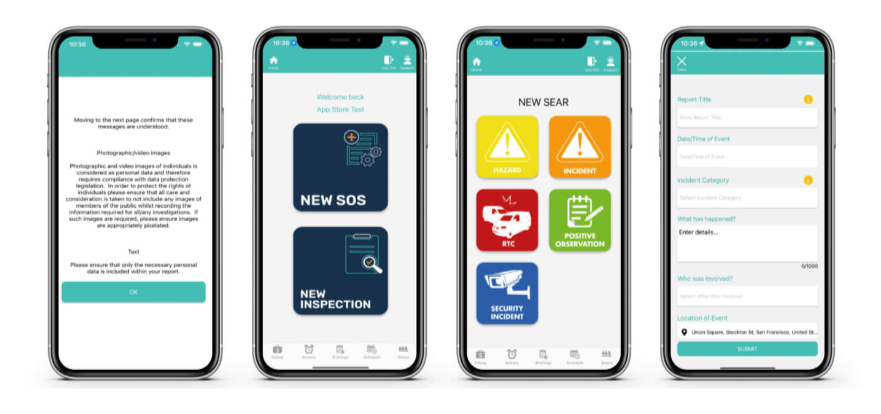
Per Salesforce research, nearly 80% of high-performing field service companies are using artificial intelligence and workflow automation. Let’s dig deeper to reason why this is happening.
As the majority of customers believe that the experience is as important as the service, field service teams are the best channel to deliver it. They are the face of a company outside of the office. However, to thrive in the field, you must strategize for on-field operations with precision and foresight. It does not end with hiring skilled technicians but also extends to proactively scheduling jobs, allocating jobs, monitoring their performance, and equipping them with the right knowledge.
.
And this is exactly what AI automation helps you with. It has enabled companies to transform their field operations with accurate insights into remote performance, availability, and overall workflow.
Field Service Management as an Emerging Revenue Driver
As highlighted in the research, a significant 86% of decision-makers across various companies using a field service model acknowledge its pivotal role in driving revenue. By facilitating timely resolution of customer issues, FSM not only improves overall service delivery but also strengthens customer loyalty, encouraging repeat business. Moreover, positive service experiences often generate word-of-mouth referrals, expanding the customer base.
Why is AI-Integration and Workflow Automation on the Rise?
Let’s see why such a significant portion of modern-day companies rely on AI-powered field service management software.
Better In-Office and On-Site Productivity
AI-integrated FSM systems enhance productivity by automating routine tasks such as scheduling jobs and dispatching technicians, reducing the time spent on repetitive admin tasks. By analyzing real-time data on job details, technician availability, and other diagnostic information, these systems automatically allocate jobs and dispatch suitable field workers. Field service management software also facilitates seamless communication between technicians and the central office, ensuring that updates and new job orders are correctly managed. This streamlines the entire workflow and improves coordination between the back office and on-field workers, enhancing overall productivity.
Extended Internal Service Staff
By incorporating chatbots and virtual agents, you can effectively multiply your customer service capacity without expanding your headcount. This AI integration acts as a force multiplier, handling routine inquiries 24/7 and freeing your human staff to tackle complex issues that require a personal touch.
Significant Cost Savings
AI integration in field service app development solutions can drive significant cost savings. With increased visibility into technician performance & location, and job statuses, companies can optimize travel expenses as well as inventory costs. Additionally, proactive maintenance based on AI-generated insights can prevent unnecessary site visits and extend equipment life, contributing to financial savings.
Improved First-Time Fix Rates
First-time fix rates are the percentage of service calls where the technician resolves the issue on the very first visit. Another prominent application is to improve these rates by empowering technicians with deeper insights and predictive capabilities. By analyzing historical equipment data, AI-based field service app development solutions can identify exact issues before they become critical, allowing technicians to rectify them within the first visit. They can also help in scheduling periodic servicing, reducing the need for additional follow-up visits.
Reduced Travel Time
Field service management software can also help with route optimization. Based on real-time location data and technician availability, it can select efficient routes that minimize response times and fuel costs. Streamlined travel logistics enable technicians to focus on delivering quality service, improving their operational efficiency as well as the customer’s service experience.
Client Success Story
See How our Field Service App Development Solutions Roped in the Above Benefits for One of our Clients
The Challenge: Inefficiencies in managing their field operations, including scheduling conflicts, lack of real-time tracking, and poor resource utilization.
Our FSM Solution: We developed an application with custom modules for managing job statuses, locating workflow bottlenecks, and generating automated reports based on recorded data. We ensured thorough protection via SSL pinning and industry-standard data encryption for on-site transactions.

Things to Consider before Implementing AI Automation in Field Service Management
While AI brings a host of performance benefits, there are a few things that you should consider:
Data Quality
AI algorithms rely on high-quality data to make accurate predictions and decisions. Therefore, before implementing a smart FSM solution, evaluate your data, ensuring it is accurate, clean, and well-integrated in a centralized system.
Employee Training and Adaptation
Introducing AI-powered field service management software can significantly change workflows, requiring office employees and field technicians to acquire new skills. To facilitate easy and effective adaptation, consider how you will provide comprehensive training to help them understand the new system/application and use it effectively.
Cost and ROI Analysis
To ensure maximum value, assess the financial implications of implementing field service app development solutions. Weigh the initial setup costs and ongoing maintenance against potential savings and benefits.
What to Expect: Emerging Trends in Technology-Driven Field Service Management
The FSM market is poised to grow from USD 4.0 billion in 2023 to USD 7.3 billion by 2028, exhibiting a CAGR of 12.8%. Within this market, the field service app development solutions segment is anticipated to account for a significant market share because of the proliferation of mobile and smart devices. These solutions make it easier for on-field technicians to access information, pick up jobs, and communicate with everyone involved in the process. Some other trends that you may come across:
Increased Integration of Futuristic Technologies
In the coming years, companies can expect an increased integration of futuristic technologies like augmented reality (AR) and virtual reality (VR). AR overlays digital information onto real-world scenarios to provide technicians with contextual data, schematics, and step-by-step instructions directly within their field of view. Similarly, VR simulations can be used to replicate hazardous scenarios, allowing technicians to practice safety protocols without actual risk.
Focus on Sustainable FSM Solutions
Another visible trend in field service management is the increasing realization of the need to focus on sustainability by addressing the environmental impact of travel inherent in field operations. Companies are starting to follow a mobile-first approach, offering AI-powered remote assistance to prevent unnecessary travel due to cancellations or other changes. Another practice driving this shift is smart scheduling – allocating jobs based on skills and a technician’s location, reducing the need for multiple site visits, and minimizing travel expenses.
Prioritization of Employee Experience
Besides focusing on customer experience, companies have also started weighing in on employee experience. This realization comes from struggling retention and engagement rates in a competitive job market, making it harder to find skilled technicians. By investing in AI-powered self-service portals, companies can empower their technicians with unrestricted access to training modules, instructions, and relevant job details. These field service management portals can be integrated with voice biometrics, drag-and-drop features, and facial recognition capabilities to provide a better experience.
Summing it up
The rapid and ongoing adoption of AI-powered FSM solutions marks a transformative shift towards enhanced customer and employee experience. By investing in these technologies, companies can significantly reduce operational costs through decreased travel time, improved first-time fix rates, optimized internal workforce utilization, and smarter scheduling.
If you already have an existing field service management software, upgrading it with AI capabilities has become imperative for efficient field operations management. Consider partnering with experts in software development companies to leverage field service management app development services. These professionals can ensure seamless AI integration, customizing solutions to streamline workflows, tackle specific challenges, and future-proof your operations.





